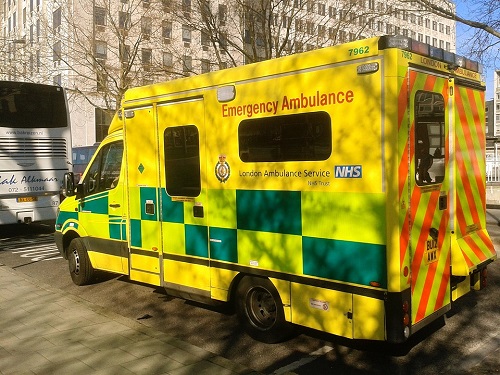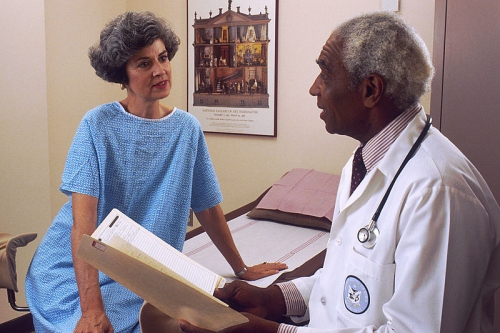The National Health Service, or NHS, is the largest and oldest healthcare provider in England. It is known to be one of the leading healthcare systems in the world. Records show that the system caters to over one million patients every 36 hours, and covers everything from routine checks to dealing with long-term illnesses.Although the system has gone through several changes in recent years, healthcare in the UK is currently free for all residents, with the exception of prescription charges, dentistry and optical services. Expats in the UK are entitled to free emergency treatment at NHS hospitals, however there are long waiting times and appointments can be hard to get.
In order to avail themselves of medical services like appointments with a General Practitioner (GP) or dentist, expats must first register for an NHS number. The NHS number takes a couple of weeks to arrive, after which one can register with a local GP. General practitioners deal with a variety of health issues like vaccinations, offering general advice about health and well-being, and contraception or maternity services. In the event that a patient needs more specialised care, a GP can refer you to the right doctor for the job.
The NHS website offers a wealth of information on all healthcare services including optometry, pharmacies, hospitals and dentists, and will allow you to search for options that are closest to your location. While the healthcare system is great and the facilities are good, most expats find the waiting times to be quite taxing. In some cases, it can take up to six weeks after a referral for a patient to actually meet with a specialist.
Launched in 2007, NHS Choices is the official website for the National Health Service in England. The website offers exhaustive information about health services and provides a variety of resources and tools, ranging from articles to videos and more. The website also features service directories where expats can compare health support and services across England before making a choice. They also publish reviews and ratings that can help patients make an informed decision.
NHS Choices also publishes health-related stories and analysis on a daily basis. All information on the site is free and available to everyone.
Registering with a GP
Every GP practices within a particular locality or area, also known as a practice boundary.
Why register with a GP?
Registering with a GP makes it that much easier to get help when you are unwell. GPs can offer you advice and refer you to a specialist if need be.
What are the costs involved?
It does not cost anything to register with a GP in the UK. Once you have registered, there are no charges to visit your GP. In the event that you need medication, your GP will give you a prescription that you can take to any pharmacy.

What documentation do I need?
Try and provide at least one of the following documents when registering:
• Birth certificate
• Passport
• Travel documents
• HC2 certificate
• Biometric residence permit
• Utility bill
• ARC card
Registering as a temporary resident
If you’re in the UK temporarily, you can still register with the nearest GP practice as a temporary resident for up to three months. At the end of the three months, your temporary registration will expire. You might want to pass on contacts and details for your permanent doctor in the event of a follow-up appointment.
Finding a GP
The easiest way to find a good and reliable GP is by asking friends for their recommendations. You could also ask at the local library, school or church. The NHS website also offers a comprehensive list of doctors that can be found based on location. Before you register with a GP, call them to confirm that they have space for new patients. You should also verify that they cover the location where you are staying.
Registering with a doctor
Once you have chosen the GP you want to register with, you can go in and register in person. The receptionist will ask you to fill out a form and offer any help you might need when filling it out. In the event that you are not confident with English or need additional help filling out the form, you can ask the receptionist to book an interpreter who can help you with this. Additionally, there are local organisations that offer support to asylum seekers, refugees and migrants who need assistance with filling out such forms.
If you are more comfortable seeing a GP of a specific gender, you can ask if one is available. If not, you can ask the receptionist for a chaperone. You can ask that your personal details are discussed in confidence and that they are always kept confidential and safe.
Being allocated a GP
In the event that you are unable to find a local GP who can take you on as a patient, the NHS can allocate a GP to you. This is only possible if there is evidence that you have tried to register with three GPs. In no situation can a GP refuse to register you due to your gender, race, religion, age, sexual preference, appearance, or disability. If a GP cannot register you, they must provide you with a letter of refusal stating their reasons. The letter should be sent to you within 14 days.
When can you see your GP?
You must always check your local GP’s website to get information about their opening hours. All GPs are required to provide a 24-hour service which means that they can be contacted in the event of an emergency. When the practice is closed, there will be an out-of-hours contact number for an emergency.
How much do GPs charge?
Most services offered by a GP are free. Some non-essential services like travel vaccinations, prescriptions and reports for insurance companies might come at a cost.
If at any point you are unsatisfied with your current GP, or if you move, you can easily change by registering with a new one.
Making the most of an appointment
Because appointments can sometimes be hard to get, you should make the most of your appointment. GPs spend an average of only 8-10 minutes with every patient, so it is advisable that you plan ahead and know what you want to discuss with the doctor. Try and make a list of your existing symptoms and issues so you don’t forget to mention them while at the appointment. If your medical problem is a little more complicated, ask for a longer appointment at the time of booking.
Getting referrals
If you are going to need specialised treatment, then you can ask your GP for a referral. However, it is entirely up to the GP to decide what the next course of action might be in your case. The great thing about going to a GP you are registered with, is that they have all your medical history and details and can refer you to a specialist after taking all of that into consideration. If you ask your GP for a referral to a specialist, they might first ask you to undergo some tests or other treatment options.

Specialists will only see patients who have a referral from a GP as the letter gives them a brief understanding of the essential information about the patient and their medical history.
Apart from being referred to specialists, GPs can also help in other areas such as smoking prevention services, weight loss programs and other self-management programs. Since these are not essential services though, they might not be available through NHS and you might have to pay for them yourself.
Dental appointments
Dentists are covered under the national plan and expats can register with the local NHS board in order to find a dentist in their area. A list of all the local dentists offering NHS treatment is available online at NHS Choices. Usually before a dentist takes you on as a patient, they might ask for information like your name and address. They might ask you to fill out a registration form and also arrange for you to have a dental check-up.
Online services
Expats can use the online services to book or cancel appointments, renew or repeat prescriptions and view their health records online. The service is completely free and anyone who is registered with a GP is entitled to access.
It is very easy to get connected to the online services:
• Let your GP know that you would like to opt for their GP online services.
• Fill out the required registration form with your details.
• Provide proof of your address and photo ID.
• After signing up, you will receive a letter with a unique username and password. Use this to log in from anywhere in the world.
When you register with your GP, be sure to ask them what services they offer and check what online system they use. The online service used by your GP might also give you access to additional online services and apps on the NHS website.
Private Healthcare Options
There are plenty of private hospitals and clinics located throughout the country. While private healthcare is expensive, it comes with a guarantee of preferential treatment and quick results. Some health insurance providers also offer international coverage for expats who travel back and forth from their home countries or for those travelling overseas on a holiday. It always helps to do some research before looking into private healthcare options and insurance policies.
NHS Health Check
A free overall health check-up, the NHS health check looks into heart disease, diabetes, strokes and kidney disease. The health check takes about 20-30 minutes and is free for those between the ages of 40 and 74. It is recommended to get an NHS health check every five years after you have crossed the age of 40. After the health check, professionals give you advice on how to lower your risk of heart disease, diabetes, dementia and so on, and help you move towards a healthier lifestyle.
Chemists and Medicines
Chemists and pharmacies are usually located close to a GP’s surgery or hospital and there are several pharmacy chains, like Boots and Superdrug, that are easily recognisable throughout the country. Many chemists in the UK are open until midnight, making it quite convenient to get medicines in an emergency.
Some medicines can be bought over the counter, while others might require a prescription from a GP. If a certain type of medicine isn’t available, most pharmacies will be able to order it within 24-48 hours.
Health Insurance Policies
Only some employers in the UK offer their employees medical insurance. This is because employers are not required by law to provide medical insurance to their employees. In the absence of company health insurance, expats would have to pay for their own health insurance if they wanted this. There are several internationally recognised providers that would be more ideally suited to the needs of expats who travel between different countries. EU citizens can apply for a European Health Insurance Card (EHIC) which ensures that travellers have health insurance in EU countries.
Emergency Services
As previously stated, emergency health care is free to all residents within the UK and immediate care is offered to those who have illnesses or acute injuries. In the event of an emergency, the number to call would be 999 or the general European emergency number which is 112. The operator will dispatch an ambulance to the given location. In the event of a medical emergency that is not as critical, expats can call 111 instead.

